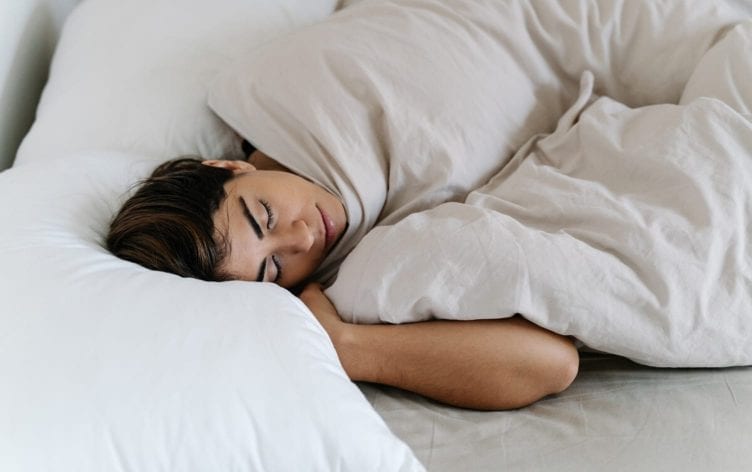
The Link Between Sleep and a Strong Immune System
There are numerous strategies related to improving the function of your immune system, from eating healthy foods to drinking enough water to getting consistent exercise. One more big one for the list? Making sleep a priority.
STRONGER WITH SLEEP
The connection between sleep and immune function is well-documented, and biodirectionally linked — which means if your immune system is down, then you’ll likely have poor sleep, but that applies in the other direction, too.
For example, one study looked at blood samples from identical twins and found those with shorter sleep duration had a depressed immune system compared to the sibling who slept better.
That can make you more likely to get sick if you’ve been exposed to a virus, says Dr. W. Christopher Winter, president of Charlottesville Neurology and Sleep Medicine, and author of “The Sleep Solution.” Also, if you end up getting ill, poor quality sleep and its immune-suppressing effects could cause you to take longer to recover.
“Immune system function and sleep quality are so connected that you can do all these other things right like eating, exercising and de-stressing, but if you’re not getting the best sleep, you’ll still be at risk,” says Winter. “Good sleep is not just nice to have, it’s absolutely essential to your health.”
THE IMMUNITY-SLEEP MECHANISM
Why is sleep such an immunity booster? It has to do with a type of protein released by your immune system, called cytokines. Think of these as your body’s go-to soldiers that fight off invaders and are enlisted whenever an infection is detected. They’re also a response to injury, and they cause inflammation as a way to kick off wound healing.
When you don’t get enough good sleep, the production of these cytokines decreases, along with the development of infection-fighting antibodies, giving you fewer defenses against a virus.
Lack of sleep could even increase your risk of injury during exercise, a recent study found. This is because during deep sleep, you secrete hormones that are crucial for muscle recovery, modulation of your inflammatory response, even how well you synthesize protein, says Winter.
Much like getting sick and having a slower recovery time due to poor sleep, you could suffer from the effects of an injury longer because of sleep deprivation, too, he adds.
BETTER SLEEP, BETTER HEALTH
Even if you sleep fairly decently right now, it’s worth the effort to look at your sleep habits to see if they can be made more efficient, Winter suggests. Some people may be getting the right quantity of sleep — the recommended amount is 7–9 hours per night — but it’s the quality that’s lacking.
You may wake up often during the night, for example, or you sleep through the night but then feel fatigued all day — a sign you may not have slept well.
A strong first habit to put into place is to set regular bedtimes and wake-up times — even on the weekends, and even if you’re working from home, suggests Dr. Mia Finkelston, family practice physician.
“We can handle some changes to our usual routine, but not as much as you might think,” she says. “When you go to bed only when you’re tired, you’re introducing too much unpredictability into your sleep schedule. And that can catch up with you.”
Also, Winter adds, try to reduce “screen time” like TV watching and smartphone scrolling for at least an hour before bed. One exception might be using an app like Calm or Headspace, which has a number of sounds and stories designed to help you fall asleep. The more you can establish a routine, the more your mind anticipates sleep on a regular basis, and that can help you fall asleep faster, says Finkelston.
If you have trouble falling asleep, avoid the temptation to get up and do something else, like catching up on email or reading the news, Winter suggests. Not only does this increase how awake you are, but it can also bring in an element of stress that prevents you from getting back to sleep easily.
“If you find yourself awake, don’t get agitated about not being asleep,” he says. “As long as the body is relaxing and you’re resting, that can have a beneficial effect on your immune system.”
Check out our Support Your Immune System Plan to get day-by-day guidance on how to stay as healthy as you can be.





























